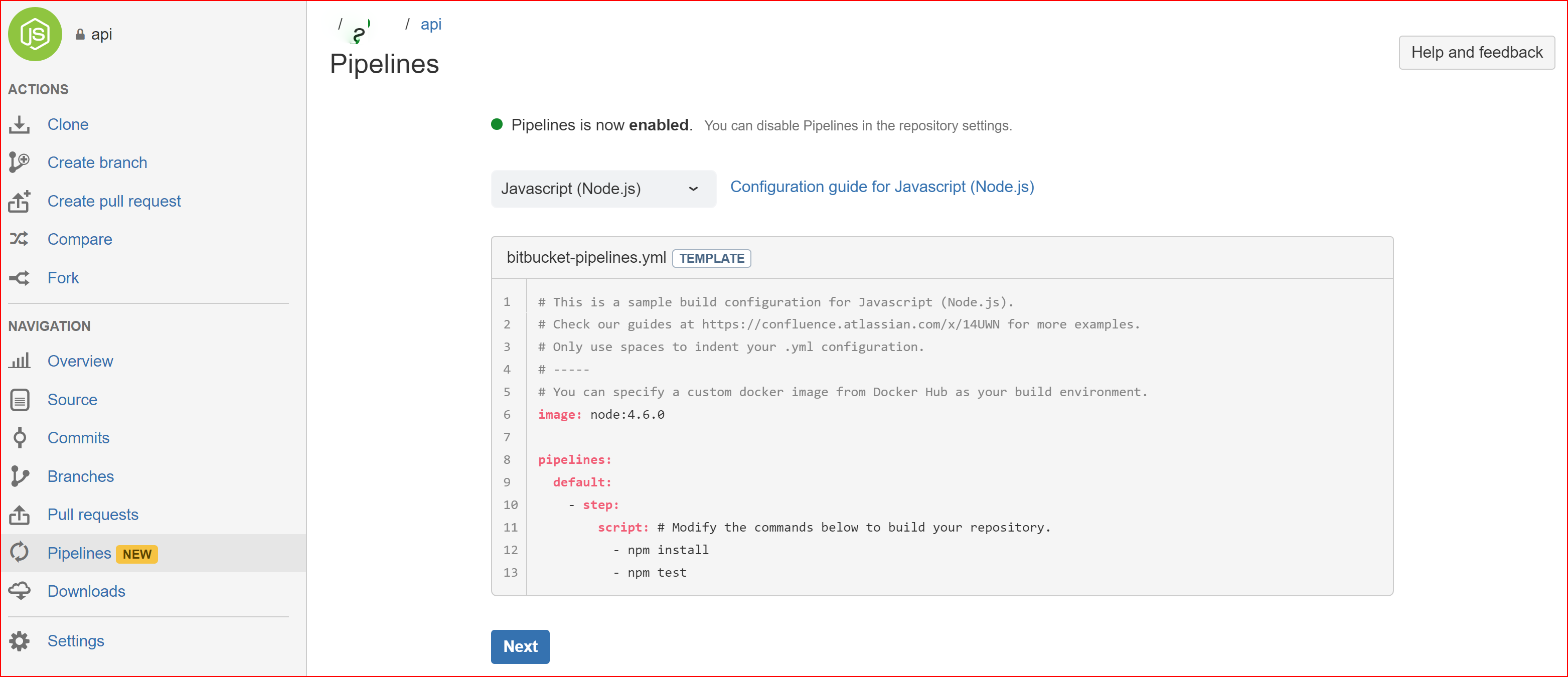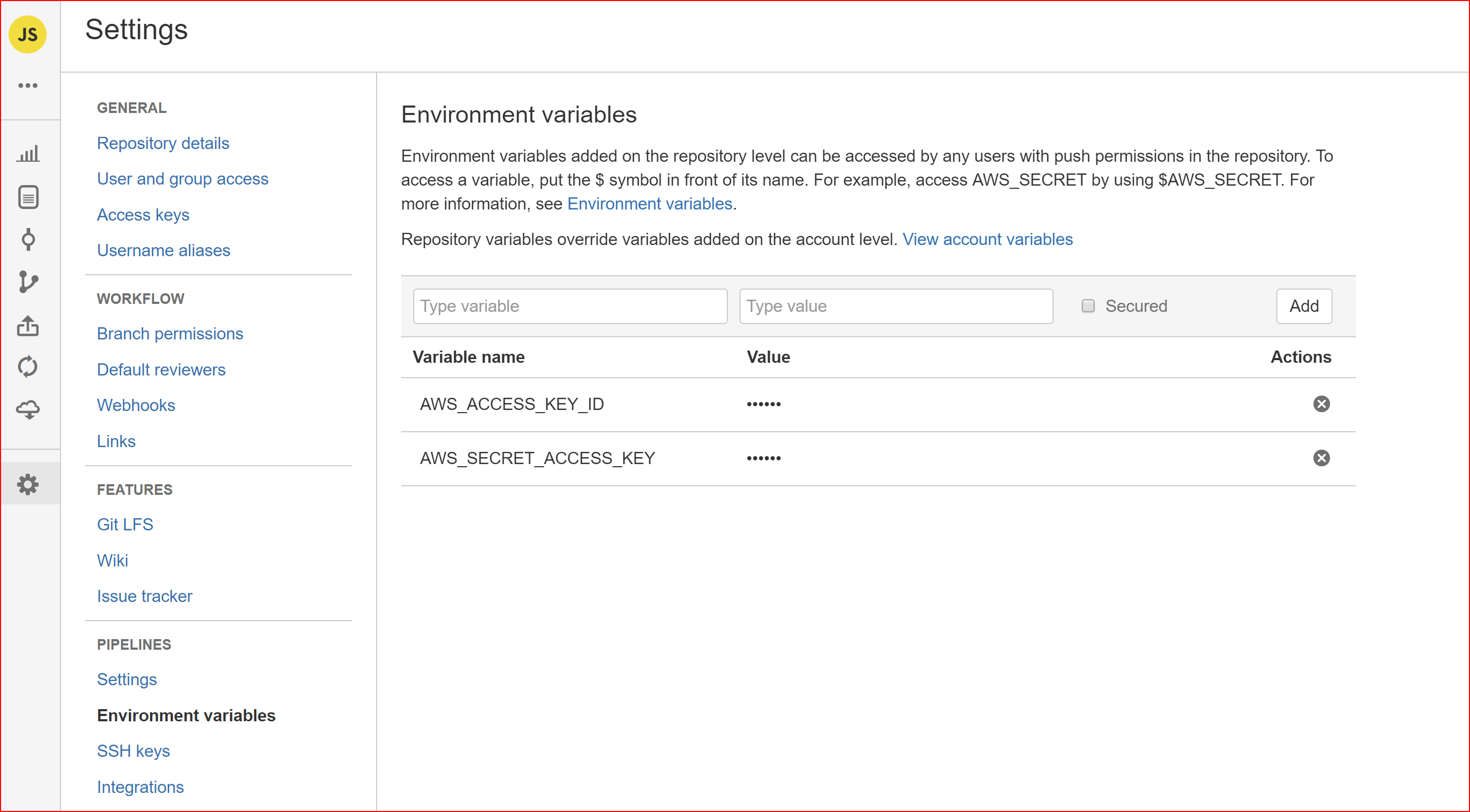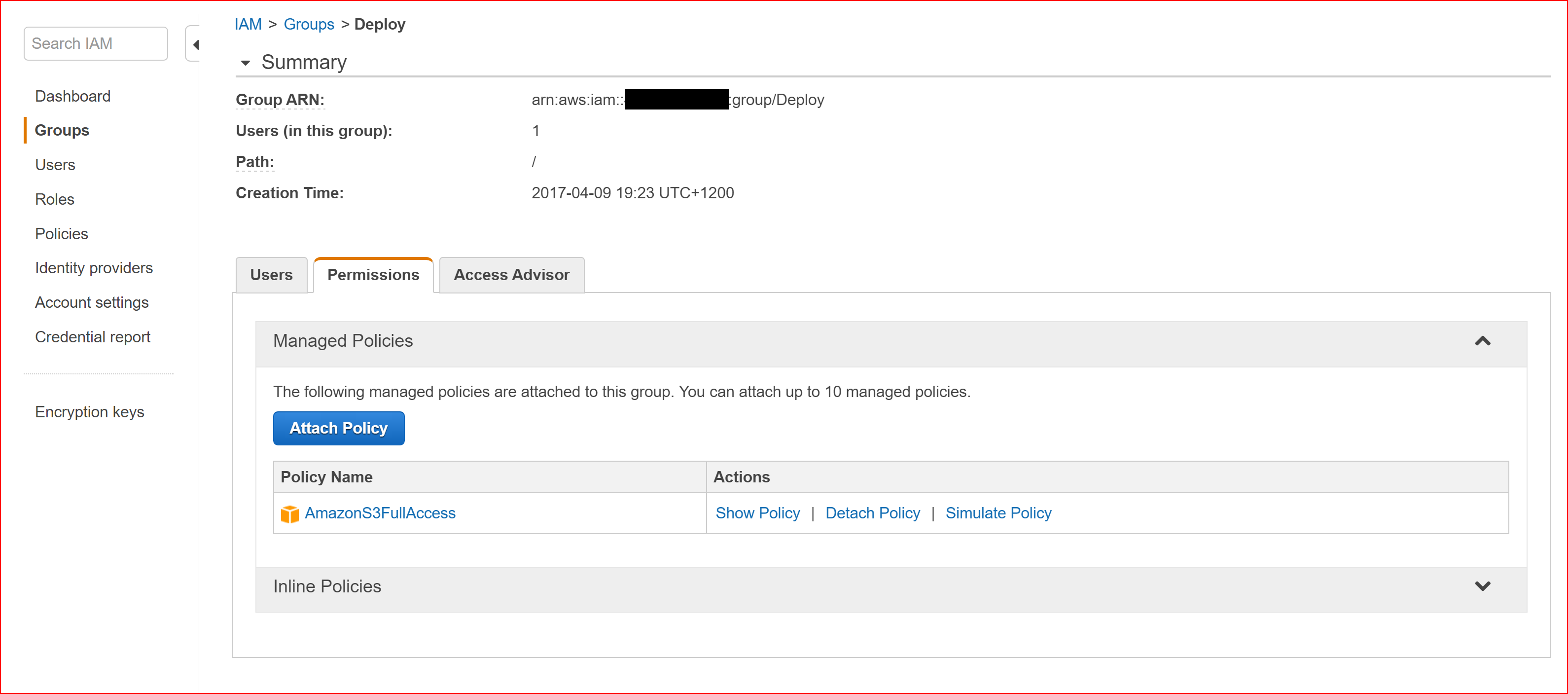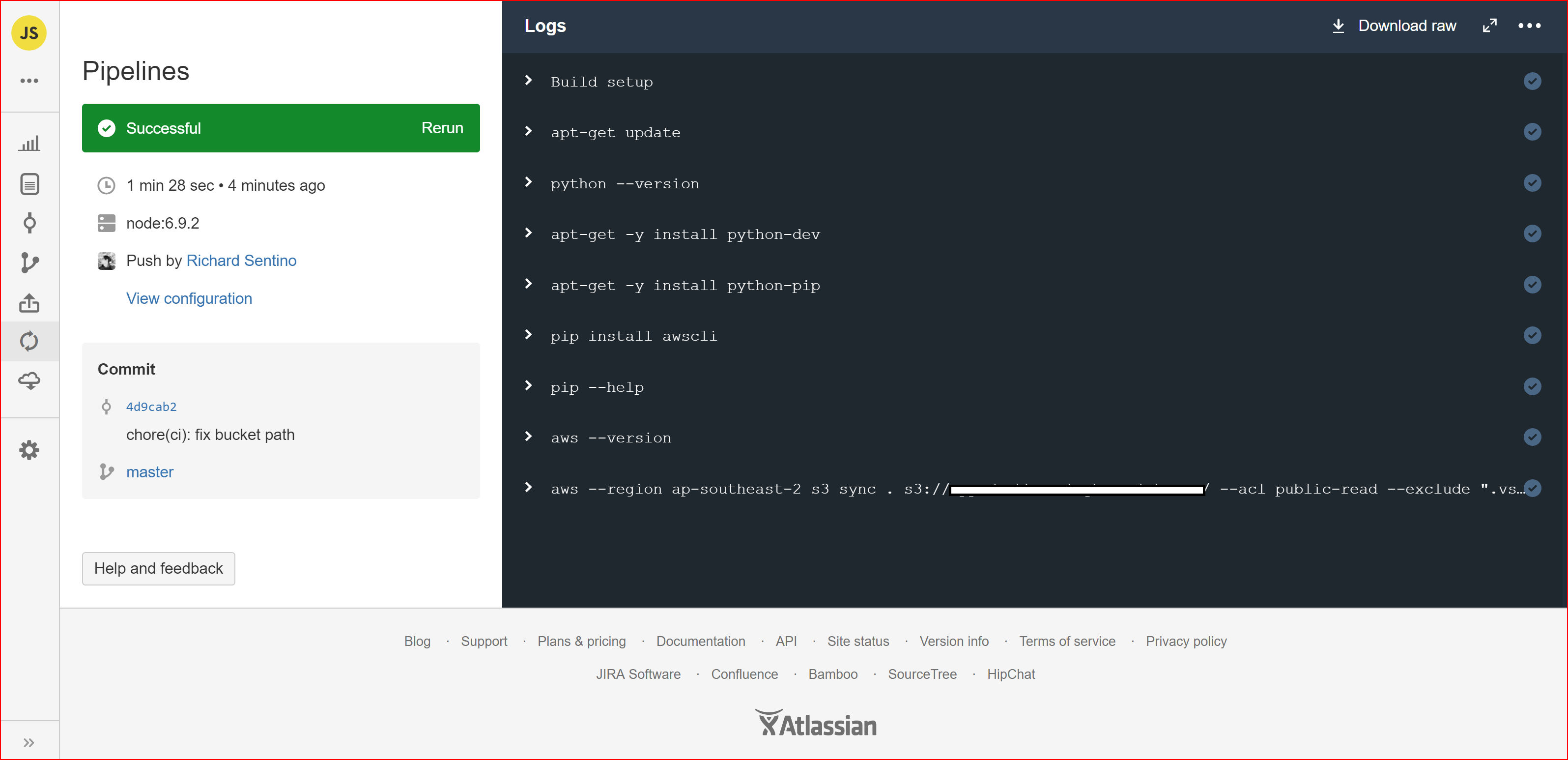Bitbucket is my main git repo for all my personal (PoC) projects, portfolio and all of my contracting projects - hands down on private repo.
While I’ve tried Codeship, CircleCI, Jenkins for production use, however, all of these CI server needs some little education about private and public certificates for setting up roles/permission/access before any of them can pull out your source code and push it to eg: Amazon S3 — Pipelines + AWS S3 was far bit easier.
I’d say easy because it only took me a couple of minutes to configure S3 and Pipeline from nothing to automated deployment. We’ll see that in a bit.
`nuff said, show me!
Pipelines
There are only 4 steps to enable Pipelines for your project:
- 1. Go to settings
- 2. Enable Pipelines
- 3. Select
bitbucket-pipelines.ymldeployment template - 4. Commit
bitbucket-pipelines.yml
Figure below is my default YAML config file for a NodeJS application:

Once you get past #4, you’re all pretty much all set.
Custom Template
My project is still in super alpha stage, I don’t want to trap myself into this complicated build systems like: Webpack, Rollup - not even Angular2 nor React. I just want keep to keep it lean, deliver fast and improve later.
Deployment is done via AWS Command Line Interface
bitbucket-pipelines.yml:
# This is a sample build configuration for Haskell.
# Check our guides at https://confluence.atlassian.com/x/5Q4SMw for more examples.
# Only use spaces to indent your .yml configuration.
# -----
# You can specify a custom docker image from Docker Hub as your build environment.
image: node:6.9.2
pipelines:
branches:
master:
- step:
script:
- apt-get update
- python --version
- apt-get -y install python-dev
- apt-get -y install python-pip
- pip install awscli
- pip --help
- aws --version
- aws --region ap-southeast-2 s3 sync . s3://path-to-your-s3-bucket/ --acl public-read --exclude ".vscode/*" --exclude ".git/*" --exclude ".gitattributes" --exclude ".gitignore" --exclude ".editorconfig" --exclude "node_modules" --exclude "yarn.lock" --exclude "package.json" --exclude "bitbucket-pipelines.yml"
Environment Variables
The last line from our bitbucket-pipelines.yml requires AWS_ACCESS_KEY_ID and AWS_SECRET_ACCESS_KEY. We’ll stick each value in Pipelines environment variable section. During the build process, Bitbucket populates these values in shell environment eg: export AWS_ACCESS_KEY_ID=
aws command line interface on the other hand, will react accordingly that we’re trying to override one of the default options once it sees AWS_ACCESS_KEY_ID and AWS_SECRET_ACCESS_KEY in environment variables. see config-settings-and-precedence

Provide a dummy value for now, we’ll get one in a bit.
Amazon S3
We’ll configure the S3 deployment using AWS Identity and Access Management tool.
- Create Group called
Deploy - Attach
AmazonS3FullAccesspermission to your Group - Create user named
deploy_s3 - Select
Programmatic accessfordeploy_s3access type - Attach
deploy_s3user to yourDeploygroup - Copy AWS_ACCESS_KEY_ID and AWS_SECRET_ACCESS_KEY
Deploy Group

User deploy_s3 Access Type
Tick the box Programmatic Access, we need the Key and Secret values later

User deploy_s3 attached to Deploy group

User deploy_s3 Credentials
Copy the Access key ID and Secret access key values and paste it into your Pipelines environment variables

Once you’ve got everything in placed. Try and push some changes to your master remote branch - check Pipelines status, and check your S3 bucket
Build it!
Here’s a successful build status

got comments, reactions or found typos ? let me know. thanks